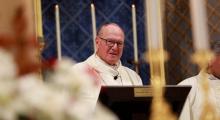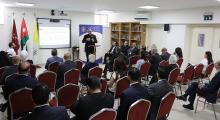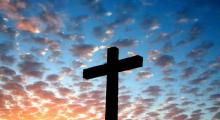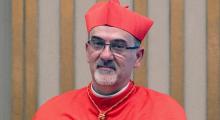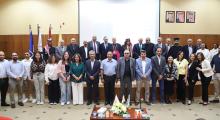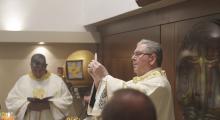Issued by the Catholic Center for Studies and Media - Jordan. Editor-in-chief Fr. Rif'at Bader - موقع أبونا abouna.org
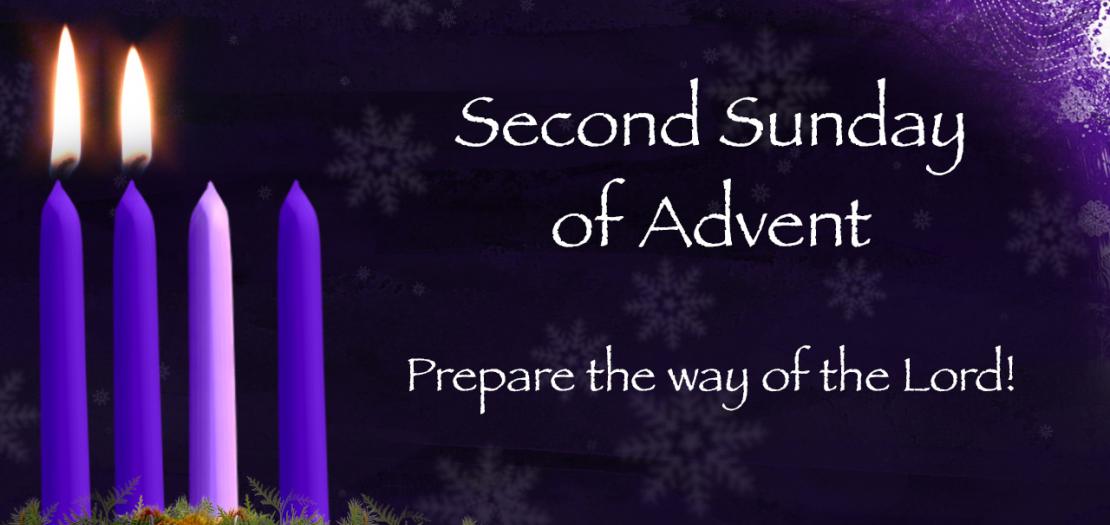
Following is the text of the meditation by Latin Patriarch of Jerusalem His Beatitude Pierbattista Pizzaballa for the second Sunday of Advent, year C, December 5, 2021:
The Second Sunday of Advent enables us to meet the figure of John the Baptist, that is, the one who precedes the coming of the Lord and prepares expectation among the people.
The passage of today’s Gospel (Luke 3: 1-6) begins in a very solemn manner, with a host of kings and priests, of important figures from the history of the time, to say that the history of God is mixed with this history of ours. God does not make a parallel history, an alternative to that of man. There is only one history, for God and for man; and man will not have to look for another if he wants to find God: he will find Him inside this story, inside the fold of these names that we hear in the passage of the Gospel and in today’s world: Caesar, Pilate, Philip…
Names that have at least two characteristics: first of all, they are seven, which is a sign of fullness, of totality. Seven names, pagans and Jews, to say that salvation is for everyone, no matter what people belong to. As some verse will say later, “every person will see the salvation of God” (Luke 3:6).
Moreover, some of these names, which seem distant, are linked to the history of Jesus and will appear in His history: Herod is remembered because he is the one who tries to put to death the newborn Child, while Pilate, Anna and Caiaphas reappear at the time of the condemnation to death.
This history, then, is also a history marked by evil, injustice, suffering: God enters this history, and brings to it something new.
This something new is simply a Word that happens in the life of a man who is in the desert: “The word of God came (lit: happened) to John, son of Zechariah, in the desert”.
Only this changes history, when a Word happens, it enters someone’s life. God always speaks, but only sometimes the Word “happens”, that is, breaks in, creates something new.
When this happens, the Word of God becomes a fact, an event, it is something that happens to you inside and that becomes your own life. It’s not something you do, you do not decide what to listen to. The Word of God happens, it breaks in, and that Word changes your life.
John, then, is first of all the one who is in the desert to receive the gift of a Word; of him we say only this, he is a man in whom a Word of God happens.
The Gospel of Luke, unlike the other synoptics, does not dwell on the different details, on the attitudes of the precursor: It says nothing about his clothes, his food… The main point about John is his being a man who listens, who waits, who receives a Word and lets it transform his life. To get to the point, the Lord needs this, He needs men who know how to listen in this way: this is the way.
Two things are important in John’s description.
The first is that John is in the desert, in the place par excellence of listening. The Word does not break into the palaces of the great names mentioned above, because they are saturated with many other words. The desert is the place where man is silent to hear a Word that is not his own.
The second is that, in John, a precise Word shows up, breaks in, which was spoken many years before: Luke in fact quotes the prophet Isaiah, chapter 40:3-5. It is the chapter where the book of consolation begins, in other words, that part of the book in which Isaiah announces the approach of salvation.
What do these verses talk about?
They speak of a vision, because this is what happens: that whoever listens, sees. He sees beyond history, beyond all that which the eyes of all see: “Every valley shall be filled, and every mountain and hill shall be made low. The winding roads shall be made straight, and the rough ways made smooth”. The eyes of all see valleys, tough ways, winding roads; they see impassable mountains and hills. Whoever listens to the Word sees that all this is having a profound transformation, to welcome the Lord who is coming, the Lord who returns in the midst of human history. Everything that is wrong, everything that is disconnected, everything can be open to a coming, a happening.
Who will do this? God or man?
The text only makes sense: God will do it, and man will be called to look, to realize what is happening, what God is doing for him. Man is called to welcome.
The outcome of this history is certain, it is sure: “Every man will see the salvation of God” (Luke 3:6).
There is no impassable road, there is no steep mountain, there is neither Herod nor Pilate, nor Caiaphas nor Anna that can prevent this fulfillment of the profound desire of man, that of seeing, of knowing, making the experience of God that saves.
The Word that bursts on John is therefore a new word, because it is for everyone.
And the first conversion to which John himself is called, and to which he himself will then call others, is precisely this: it is that sins will be forgiven just as mountains will be made low.
This is the true news that happens in history for those who, by listening, see.
+Pierbattista


